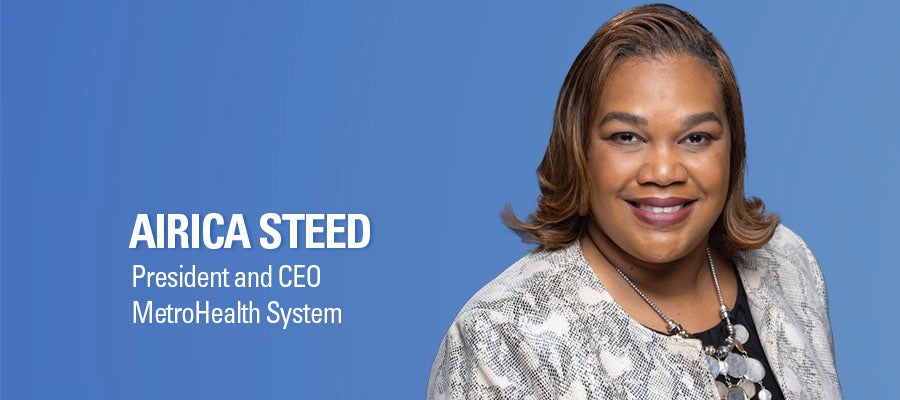Championing Health Equity

The central challenge we face in health care today is the galling health inequities impacting communities across the United States.
And let’s be clear, the numbers are staggering. Heart disease, stroke, cancer, asthma and diabetes are far more likely to kill you if you are a person of color. In addition, women of color are more than twice as likely to die from pregnancy-related causes than white women, while Black women are more than 3 times as likely to die. In Cuyahoga County, Ohio, which is home to some of the best health care institutions in the world, Black babies die at nearly 4 times the rate of White babies and the city of Cleveland has been ranked the least livable place in America for Black women.
These are not just statistics for me. They are tragedies members of my family and I have experienced over and over, as so many American families have for far too long. This is totally unacceptable in a nation as rich and technologically advanced as the United States.
We all need to do more – much more – to make health equity a reality for all.
I am laser-focused on zeroing out this death gap by eradicating health disparities. Not slowing them down or putting a dent in them, but ending them. I am absolutely convinced we can do this by working smarter, being more collaborative and above all by listening more attentively to our patients and our communities. We need to go outside the four walls of our hospitals and treat our communities as patients by engaging all stakeholders in conversations that can diagnose their most pressing needs, and determining what we as providers are doing well and where there are gaps. Then we need to develop real mechanisms to turn that feedback into action.
At MetroHealth, we are creating a series of Community Advisory Councils that represent all parts of our service area and will allow us to get real-time feedback to better target health care delivery and expand access to care. Health care institutions must also take specific steps to address the multiple social drivers of health, including food insecurity and housing insecurity, which have a tremendous impact on the health and wealth of our communities. For example, our Institute for H.O.P.E screens at-risk patients to assess additional social services individuals may need, such as job training or transportation assistance, and then connects them with local community agencies that can provide the necessary support.
Finally, and most importantly, we must make a real commitment to representation. We trust people who look like us, who have the same lived experience and have shared our struggles. Health care will not really be more inclusive until more of our leaders look like our patients. And I say this as a Black female hospital CEO where less than one percent of my colleagues look like me.
When everyone has a real voice and an actual seat at the table, we make better decisions that have a more positive impact on our communities.
Airica Steed is the president and CEO of MetroHealth System in Ohio.

